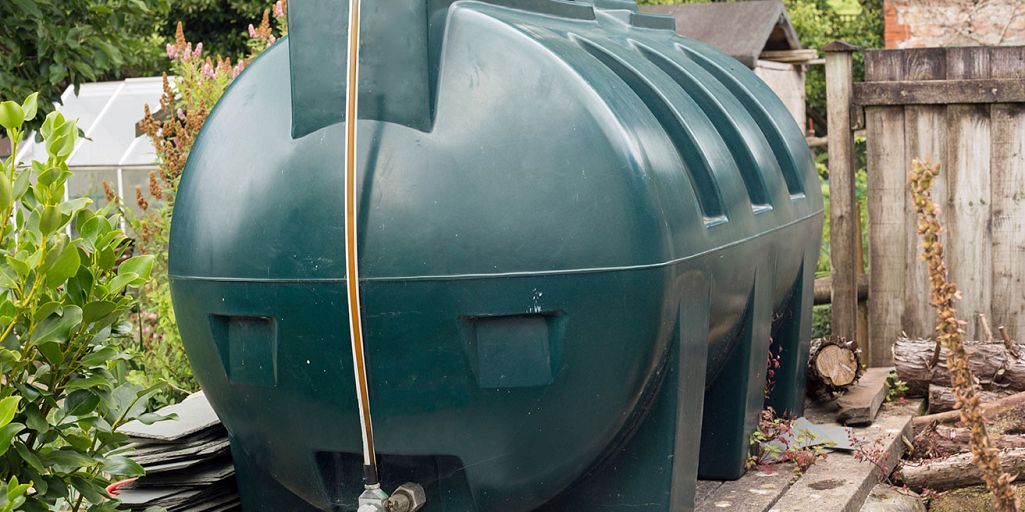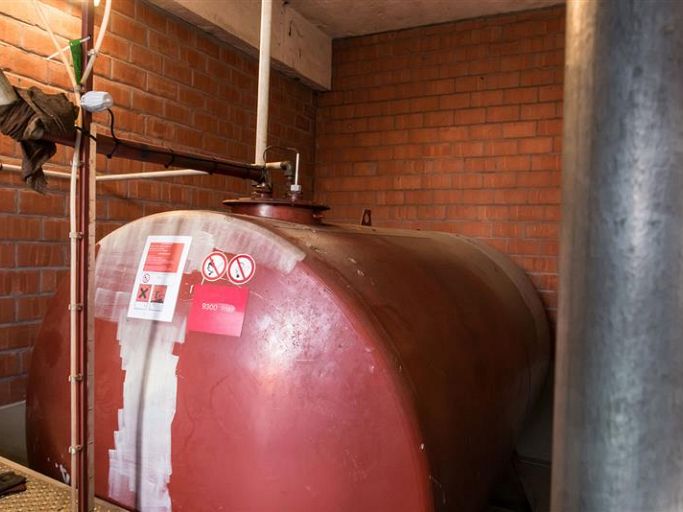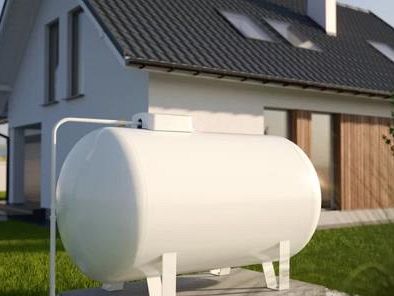- Oil
- Diesel
- Petrol
- AdBlue
- Water
- Sewage
- Hot Water Cylinders
-
Brands
- New Releases
- In Stock
- Sale
- Best Sellers
- Fuel Tank Hire
- More
-
Services
Our top 8 ways to maintain your oil tank
8th August 2022 in oil

Taking care of your oil tank is essential. Regular oil tank maintenance means avoiding potentially expensive repair or replacement costs, and if you follow our basic guide to steps you can take you can be confident your tank will operate efficiently. Making sure you have problem-free heating in your home is really important – particularly, of course, during the winter months.
1. Type of tank
Although the basic principle of a tank is always the same – to provide fuel through an outlet pipe – the type of oil tank you install (or the type that’s already situated on your property) does have some bearing over maintenance tasks. Knowing exactly which type of oil tank you have will enable you to look after it properly, resulting in best performance.
The most common oil tanks available are made of green or black plastic or are steel coated. There are variations. Some tanks are single-skinned(which means a one-layer container), while others are double-skinned(these are usually steel) or bunded. A bunded tank is basically a tank within a tank. The inner tank is the storage receptacle for your oil, while the outer tank acts as protection from contamination, spillage and leaks, oil loss, theft and damage. At the point of installation, a heating professional can offer you the right guidance for your situation and ensure you end up with the correct type of tank.
2. Checks you can make and steps you can take
- Site and position of tank
- Integrity of tank
- Tank fittings
- Control mechanisms
- System test
- Cleaning
- Insurance policy (if possible)
3. The site and position of your tank is important
Although it might seem like the kind of object you can situate more-or-less anywhere, it’s always wise to ensure your outdoor tank is protected from the elements as much as possible: strong winds and falling ice or snow. Other potential hazards could include nearby trees (falling branches or, indeed, falling trees could be a problem, however unlikely that might seem). If the tank is in your garden, it’s also a good idea to try and fence or wall off the sides of the tank in some way so that the lines and filters don’t get accidentally run over by a mower or cut during garden maintenance.
There is always the possibility that your tank is buried beneath your yard or garden. Though this offers free space and improved visual aesthetics in your environment, this type of tank is much harder to upkeep. It’s more difficult for a layperson to check, so we’d suggest investing in some sort of maintenance contract with an oil company. Perhaps the specific provider of your tank offers this kind of service, though if not you should easily be able to find a company that does.
Either way – buried tank or above-ground tank - it may offer you the required amount of reassurance if you get tank maintenance specialists to check yours over regularly.
4. Integrity, fittings and control mechanisms
- Age of tank / warranty: Be aware that 10 years is the usual guarantee. If you find costs start to escalate after this, you may want to consider getting it replaced.
- Integrity: Check for rust if you have a metal tank.
- Legs: Check that legs are not missing, rusted, or deformed (buckled or bent).
- Leg brackets: Make sure they are not cracked or coming away.
- Platform: Check it isn't cracked or deformed.
- Pipework, valves and filters: Check connections for leaks, drips and dampness.
- Vent Screens: Check they are not corroded, clogged, broken or missing.
- Control Mechanisms: Check the vent whistle works. Check the oil tank gauge works by monitoring levels as you use up the oil. Check whether it is cracked or loose.
- General checks: Dents, cracks, discolouration, wet spots / weeping, rust, warps, bulges and deformities.
5. How do I know if my oil tank is leaking?
- Money: An oil leak is, typically, slow – so any increase in heating costs won’t be noticeable at first. If you spot a steady increase in your costs, it’s possible that your oil tank is leaking.
- Smell: It’s not unusual for there to be a faint smell of oil near the tank, but if it is really strong then you may potentially you have a leak. Check pipes and connections etc, as well as the tank itself for cracks or holes.
- Soil impact: Oil leaks will affect the way your soil smells. Dig the ground around the tank, and if the smell of oil is apparent then it’s almost certain that you’ve got a leak.
- Water: A less common way to tell if your oil tank is leaking is if water becomes contaminated. For this to happen, the tank would have had to be leaking for a long time.
6. Corrosion and cleaning the tank
Perhaps surprisingly, oil tanks tend to corrode from the inside out. The scientific explanation is simple: condensation forms on the interior, and the resulting water becomes trapped. A sludge-like mix of water, rust and oil forms at bottom of the tank below the actual oil (remember, oil floats on water). Oxidised metal and water can be drawn into the outlet pipe and mixed in with your fuel supply which will cause blockages in filters and valves and damage your system – which means huge maintenance and repair costs.
So, cleaning is an absolute necessity to sort out this issue. Oil tank professionalssuggest having your oil tank cleaned (which involves it being pumped out) every five years is optimum. Obviously, it’s always best that you don’t undertake this crucial task yourself.
7. Test Your Heating System
It will help you understand your heating system if you consider your oil tank as an integral part of it, rather than an addition or precursor to it. It’s a good idea to book in a professional inspectionof your system by a qualified engineer once a year, at least, and prior to the cold season is the ideal time for testing. Checking flow rates and identifying blockages should be carried out on the entire heating system, not just the oil tank.
The best form of insurance policy you can take out on your tank is to sign up for a maintenance programme involving qualified engineers from an established company. This mostly preventative programme means someone who knows what they are doing will spot things early and make the necessary fixes, and any repair or replacement costs won’t spiral out of your control (not to mention the inconvenience).
Unfortunately, actual insurance on oil tanks is difficult to obtain – and an improperly maintained oil tank can be cited by insurance companies as a reason not to pay out on household insurance. Leaking tanks can cause environmental damage, which insurance companies won’t cover. For example, an oil leak is likely to ruin your garden, and the insurance company won’t pay out to put things right. If a tank leak damages neighbouring property or public land, you may end up having to face legal costs and fines as well as the cost of repairing the damage because, again, insurance companies won’t pay out on this.
8. I can’t be bothered, and I don’t want to pay
It’s really not wise to ignore the needs of your oil tank. You’ll get the best out of it if you look after it – prolonging its life, maintaining its performance and keeping your system efficient and financially controllable. If you don’t want to take any steps to maintain it yourself, it’s always good to invest in some sort of maintenance contract with a qualified tank engineer. A small repair now could save you hundreds of pounds in oil tank costs later!
Similarly, keeping on top of the maintenance of your oil tank has a rolling benefit. Fuel is expensive and in the current climate it is also unpredictable. If your tank isn't property maintained, the fuel that you have stored in it could be leaking out and you may need a refill more often – increasing your monthly or quarterly costs. Additionally, if you are unable to work out when you need to be topped up, you’re running the risk of running out of fuel. That’s not the end of the world, of course – but being cold and having to pay extra for an emergency delivery are inconveniences you shouldn’t be prepared to risk.
How much does an oil tank inspection cost? That will vary from company to company, but it’s relatively inexpensive when you consider the reassurance it provides, as well as the physical maintenance itself. So it’s always a price you should be prepared to pay. Ultimately, tank oil maintenance is a wholly justifiable expense. It really is worth it.
One of the largest selections of tanks in the UK
Chat online or call us today on 01469 531229
Related Products
More Articles

How to Prevent Oil Theft – 8 Security Measures
1st August 2022 in oil

7 signs your oil tank needs replacing
4th August 2022 in oil

What are the advantages of a bunded oil tank?
6th August 2022 in oil

Our top 8 ways to maintain your oil tank
8th August 2022 in oil
Help
About Us
My Account
Newsletter Sign Up
Inspiration direct to your inbox, please enter your email below...
Help About Us My Account
© Tanks R Us. All rights reserved. Registered in England. Registration number. 05804332. VAT number 364402764
Designed and produced by Kal Group